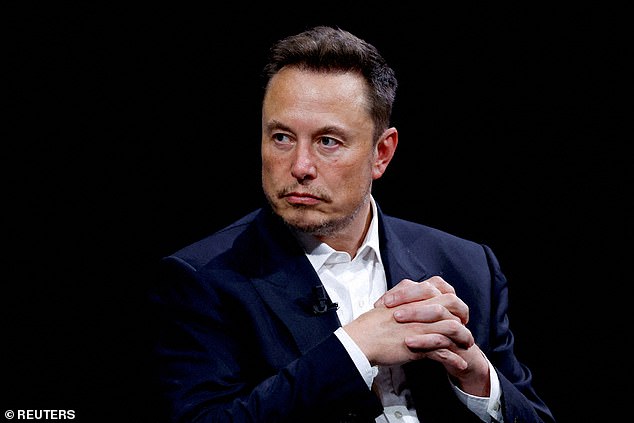Elon Musk has said that astronauts could land on Mars within just four years,as NASA faces pressure over its delayed plans to land on the moon.
Space X will launch its first uncrewed Starships to Mars in two years when the next Earth-Mars transfer window opens - which is the point at which Earth and Mars are closest - to test the reliability of landing intact on Mars.
If these tests are successful,Space X,which Mr Musk founded in 2002,will launch crewed flights to Mars in four years.
Mr Musk posted on X on Saturday: 'The first Starships to Mars will launch in two years when the next Earth-Mars transfer window opens.
'These will be uncrewed to test the reliability of landing intact on Mars. If those landings go well,then the first crewed flights to Mars will be in four years.

Pictured,the crew of Artemis II,which was supposed to take place in 2024. Victor Glover (second from left) is the first person of colour selected for a moon trip,while Christina Koch (second from right) is the first woman. They have been chosen alongside Reid Wiseman (left) from Baltimore,Maryland and Canadian astronaut Jeremy Hansen (right)
A second trip is expected later this year atop Space X's Falcon 9 rocket to carry a NASA payload called PRIME-1 (Polar Resources Ice Mining Experiment-1) to hunt for water ice.
Intuitive Machines plans to launch the IM-3 moon mission next year and the new contract will support the company's fourth lunar effort.
All of these missions are an initiative that seeks to gather a wealth of moon data ahead of the planned arrival of astronauts later this decade via the Artemis programme.
NASA is relying heavily on private companies for its Artemis moon-landing program,including Elon Musk's company SpaceX.
For Artemis III,SpaceX's Starship mega rocket will be needed to get the first moonwalkers from lunar orbit down to the surface and back up.
In June,a Starship rocket survived a fiery,hypersonic return from space and achieved a breakthrough landing demonstration in the Indian Ocean,completing a full test mission around the globe on the rocket's fourth try.
Musk is counting on Starship to fulfil his goal of producing a large,multipurpose next-generation spacecraft capable of sending people and cargo to the moon later this decade,and ultimately flying to Mars.
NasaElon MuskSpaceEarthMars